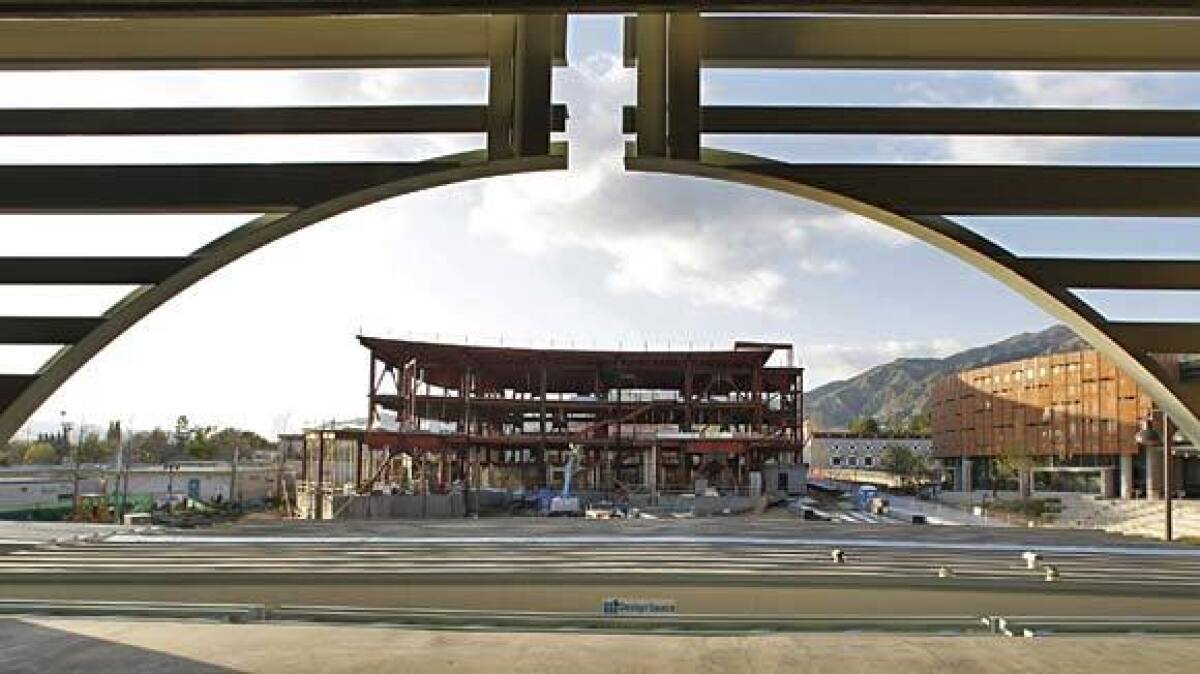New panel to review L.A. community colleges’ flawed rebuilding program

- Share via
The Los Angeles Community College District will set up an independent citizens panel to review “the very serious issues” plaguing its $5.7-billion campus rebuilding program, Chancellor Daniel LaVista has announced.
The construction program “must be reassessed in an effort to resolve legitimate issues on the remaining projects, complete future projects effectively and demonstrate the district’s commitment to program integrity,” LaVista wrote in a newsletter sent late Monday to college faculty and staff.
The panel, he said, will examine construction costs and the district’s “system of checks and balances to ensure ethical and prudent decision-making,” among other things.
LaVista acted in response to a recent six-part series in The Times, which reported that tens of millions of dollars had gone to waste as a result of chaotic planning, shoddy workmanship and bungled or abandoned projects at the district’s nine campuses.
The district, for example, spent $39 million to design and start construction of four major buildings at West Los Angeles College, then scrapped the projects when officials realized there would not be enough money to finish them. It lost $10 million more to mistakes in the management of a renewable energy program.
On March 9, three days after the series concluded, the district’s elected Board of Trustees fired the head of the construction program, Larry Eisenberg.
Reached in Sacramento on his mobile phone, LaVista declined to comment Tuesday.
His newsletter left unclear how the new panel would differ from the 10 citizens committees that already monitor the program — one for each campus and one for the district as a whole. In the newsletter, LaVista said he hoped to release details of the new panel’s mission and membership on April 27.
Henry Porter, a member of the districtwide oversight committee since 2007, was skeptical of the new initiative, saying leaders of the construction effort had failed for years to give his panel the information required to monitor the program effectively.
“If you’re not giving them the information needed, it’s all superfluous,” he said.
Elliot Axelband, vice chairman of the districtwide oversight committee, welcomed LaVista’s announcement, even as he lamented the district’s failure to report problems to his panel.
“We weren’t aware of any nepotism,” said Axelband, alluding to The Times’ disclosure that some top college officials had secured jobs for their relatives on the construction program. “We weren’t aware of some of the major construction problems and poor planning.”
Lydia A. Gutierrez, a Long Beach teacher who is seeking a seat on the Board of Trustees in a May 17 runoff election, said LaVista’s new panel would be mere “window dressing” unless the chancellor replaced more of the key players in the construction program.
“Until you have qualified people in the jobs, you’ll just be walking in a circle,” Gutierrez said.
She also called on LaVista to release the findings of a 2010 special audit of construction spending by management consulting firm Capstone Advisory Group LLC. The district released Capstone’s recommendations but has kept its findings secret.
Gutierrez’s opponent, Scott J. Svonkin, a senior advisor to Los Angeles County Sheriff Lee Baca, said the new committee was “a good first step” but called for further action to clean up the program.
“If we’re going to fix this system,” said Svonkin, a San Gabriel Unified School District board member, “we have to first hold people accountable for the lax oversight that existed.”
Voters approved the construction program in bond measures passed in 2001, 2003 and 2008. They agreed to pay higher property taxes until at least 2050 to repay the bonds. With interest, the total debt will amount to about $11 billion.
More to Read
Sign up for Essential California
The most important California stories and recommendations in your inbox every morning.
You may occasionally receive promotional content from the Los Angeles Times.














